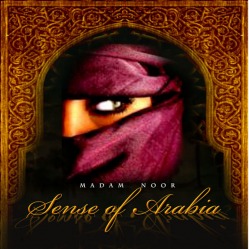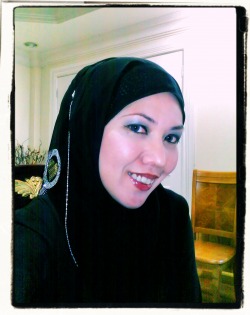Sense of Arabiya
...the beginning...

The history of perfume began in antiquity. The word perfume used today to describe scented mixtures, derives from the Latin "per fumus", meaning through smoke. Perfumery, or the art of making perfumes, began in ancient Egypt but was developed and further refined by the Romans and the Arabs. Although perfume and perfumery also existed in East Asia, much of its fragrances are incense based. The basic ingredients and methods of making perfumes are described by Pliny the Elder in his Naturalis Historia.
I was never a perfume fan. Especially women's perfume, they were too sweet for me and it made me nauseous. I only remember wearing two types of perfumes, both being pour homme! Davidoff's Coolwater and Eternity.I stopped wearing perfume after i had my second daughter. Body splash was all i had!
Living in the UAE changed all that. Arabian perfume to me had always been the traditional strong smell of spice in those little bottles and the oils were always black in color. Back home, men would wear the arabian perfume usually for the friday prayers, "Minyak Attar" as they are often called. But you know what? Attar actually means Rose Oil, meaning either rose otto (attar of rose, attar of roses) or rose absolute, is the essential oil extracted from the petals of various types of rose. Rose ottos are extracted through steam distillation, while rose absolutes are obtained through solvent extraction or supercritical carbon dioxide extraction, with the absolute being used more commonly in perfumery. Even with their high price and the advent of organic synthesis, rose oils are still perhaps the most widely used essential oil in perfumery.
Islamic cultures contributed signficantly in the development of Western perfumery in both perfecting the extraction of fragrances through steam distillation and introducing new, raw ingredients. Both of the raw ingredients and distillation technology significantly influenced Western perfumery and developments, particularly chemistry. As traders, Islamic cultures such as Arabs and Persians had wider access to different spices, herbals and other fragrance material. In addition to trading them, many of these exotic materials were cultivated by the Muslims such that they can be successfully grown outside of their native climates. Two examples of this include Jasmine, which is native to South and Southeast Asia, and various citrus, which are native to East Asia. Both of these ingredients are still highly important in modern perfumery.
In Islamic culture, perfume usage has been documented as far back as the 6th century and its usage is considered a religious duty. Muhammad (PBUH) said:
"The taking of a bath on Friday is compulsory for every male Muslim who has attained the age of puberty and (also) the cleaning of his teeth with Miswaak (type of twig used as a toothbrush), and the using of perfume if it is available." Anyway, to cut the story short, living in the middle east has been quite an eye openr for me relative to perfumes, may it be incense, beauty oil, essential oil or whatever. I now live and breathe the beautiful, alluring and sensual scents of the heavens as what i dub it and i would like to share it with you as i go on this quest to revolutionise the scent of the Bruneian Women!
I was never a perfume fan. Especially women's perfume, they were too sweet for me and it made me nauseous. I only remember wearing two types of perfumes, both being pour homme! Davidoff's Coolwater and Eternity.I stopped wearing perfume after i had my second daughter. Body splash was all i had!
Living in the UAE changed all that. Arabian perfume to me had always been the traditional strong smell of spice in those little bottles and the oils were always black in color. Back home, men would wear the arabian perfume usually for the friday prayers, "Minyak Attar" as they are often called. But you know what? Attar actually means Rose Oil, meaning either rose otto (attar of rose, attar of roses) or rose absolute, is the essential oil extracted from the petals of various types of rose. Rose ottos are extracted through steam distillation, while rose absolutes are obtained through solvent extraction or supercritical carbon dioxide extraction, with the absolute being used more commonly in perfumery. Even with their high price and the advent of organic synthesis, rose oils are still perhaps the most widely used essential oil in perfumery.
Islamic cultures contributed signficantly in the development of Western perfumery in both perfecting the extraction of fragrances through steam distillation and introducing new, raw ingredients. Both of the raw ingredients and distillation technology significantly influenced Western perfumery and developments, particularly chemistry. As traders, Islamic cultures such as Arabs and Persians had wider access to different spices, herbals and other fragrance material. In addition to trading them, many of these exotic materials were cultivated by the Muslims such that they can be successfully grown outside of their native climates. Two examples of this include Jasmine, which is native to South and Southeast Asia, and various citrus, which are native to East Asia. Both of these ingredients are still highly important in modern perfumery.
In Islamic culture, perfume usage has been documented as far back as the 6th century and its usage is considered a religious duty. Muhammad (PBUH) said:
"The taking of a bath on Friday is compulsory for every male Muslim who has attained the age of puberty and (also) the cleaning of his teeth with Miswaak (type of twig used as a toothbrush), and the using of perfume if it is available." Anyway, to cut the story short, living in the middle east has been quite an eye openr for me relative to perfumes, may it be incense, beauty oil, essential oil or whatever. I now live and breathe the beautiful, alluring and sensual scents of the heavens as what i dub it and i would like to share it with you as i go on this quest to revolutionise the scent of the Bruneian Women!

